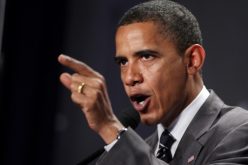HEDA wants the trial to put more pressure on the Nigerian government to take action against the accused oil companies.
“We want to reveal the players in the notorious Malabu scandal, in which laws and guidelines were broken and ignored,” Suraju told DW in an interview. He is optimistic that he can win the process and set a precedent. After a hearing, the court in Lagos set June 13 as the day when the trial should begin.
No admission of guilt
In Milan, the Italian prosecutor accuses Eni’s Managing Director, Claudio Descalzi, and managers of both oil companies of having known that most of the $1.3 billion would be dished out as bribes.
The accused oil companies continue to deny any wrongdoing. Independent investigations have shown no misappropriation, Eni said, and the firms maintain that all payments had only been made to the government. “Eni has not made any agreements with Malabu,” Roberto Albini, press spokesperson for the Italian oil company, told DW.
Shell Group’s position does not differ from Eni’s: “We believe that there is no basis for convicting Shell and its former employees,” Anna Haslam, Shell’s spokeswoman told DW. “If evidence ultimately shows that Malabu or others had made improper payments to former members of the government and received consideration for them, this would have happened without Shell’s knowledge or instruction.”
Unprecendented process
According to the British environmental organization Global Witness, Shell has already admitted to having done business with the convicted money launderer Dan Etete. Confidential e-mails from a former Shell employee were sent to the organization in April 2017 and Global Witness published the emails: “The emails we have published today show senior executives knew the massive payment for the oil block would go to Dan Etete — a convicted money launderer and former Nigerian oil minister,” they said of the report’s publication.
Confronted with the emails, Shell admitted to The New York Times that it had no choice but to deal with Etete and his Malabu Company— but the British oil giant argued that everything had been done legally.
For Barnaby Pace, head of investigations at Global Witness, the Milan trial is unprecedented: “Never before have companies of this size been tried for corruption. Managers of other oil companies should be really worried that they could end up in prison for corrupt practices.”
The trial also gives hope to the victims. “This [corrupt] deal with Shell and Eni cost the people of Nigeria a sum as high as its public health expenditure in 2017,” Pace told DW in an interview. “One in ten children in the country dies before their fifth birthday.”
According to Edward Kianagbo, a media personality in Port Harcourt, many Nigerians are angry and agree that corruption must be drastically fought and punished. “The oil wealth of the Niger Delta should benefit all Nigerians.”
Muhammad Bello contributed to this article.










